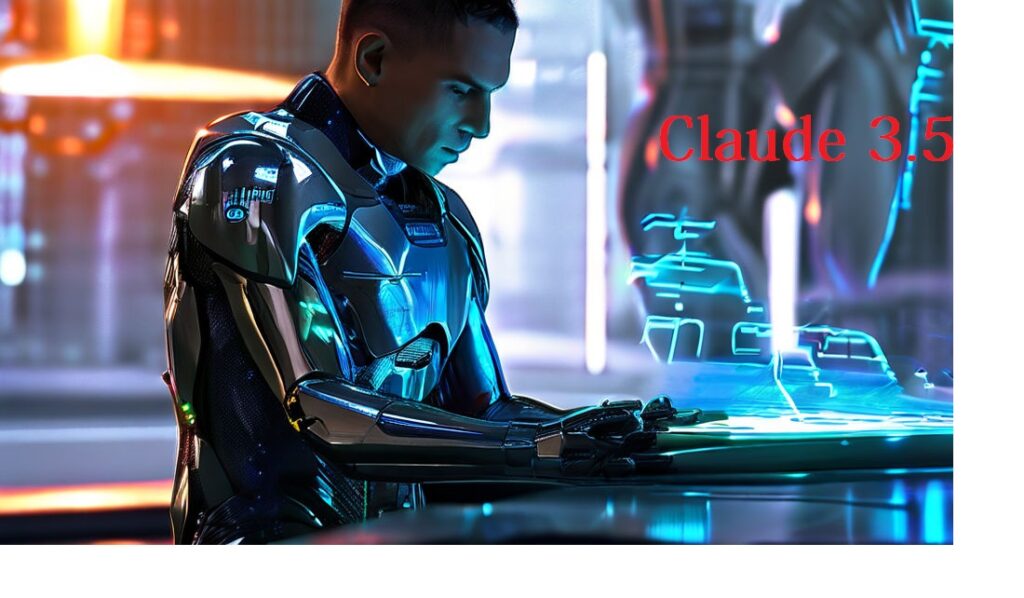Claude 3.5 Sonnet Creative problem-solving, a key aspect of human intelligence, is being revolutionized by generative AI. Previously seen as merely statistical tools for word patterns, these AI models are now at the forefront of innovation. Anthropic, once a smaller player, is now challenging tech giants like OpenAI, Google, and Meta. This shift comes with the introduction of Claude 3.5 Sonnet, an advanced model in Anthropic’s lineup of generative AI systems. Claude 3.5 Sonnet excels in problem-solving, outperforming competitors like ChatGPT-4o, Gemini 1.5, and Llama 3 in areas such as advanced reasoning, knowledge proficiency, and coding skills.

Anthropic categorizes its models into three sizes: small (Claude Haiku), medium (Claude Sonnet), and large (Claude Opus). The new and improved medium-sized Claude Sonnet has been released, with updates to Claude Haiku and Claude Opus planned for later this year. Claude 3.5 Sonnet is not only more capable than its predecessor, Claude 3 Opus, but also faster.
This article explores Claude 3.5 Sonnet as a powerful tool for AI-driven problem solving. It’s important for developers to understand its strengths to determine its suitability for their projects. We analyze Sonnet’s performance on various benchmark tasks to identify its advantages over other models. Based on these benchmarks, we present different use cases for Claude 3.5 Sonnet.
Claude 3.5 Sonnet is making waves in the AI world, excelling in various benchmarks and demonstrating its potential for real-world applications. Here’s a breakdown of its strengths and how they translate into practical uses:
1. Knowledge Ace: Claude 3.5 Sonnet tackles undergraduate-level knowledge with ease, making it a valuable tool for education, content creation, and basic problem-solving tasks.
2. Coding Master: Need help coding? Claude 3.5 Sonnet understands and generates code, boosting productivity in software development, debugging, and various coding tasks.
3. Text Whisperer: Claude 3.5 Sonnet can grasp complex textual information, making it ideal for information retrieval, question answering, and content summarization.
4. Graduate-Level Thinker: Claude 3.5 Sonnet tackles advanced reasoning challenges, making it a powerful tool for research and solving intricate real-world problems.
5. Multilingual Math Whiz: Claude 3.5 Sonnet solves math problems across languages, making it perfect for developing AI systems for multilingual mathematical assistance.
6. All-Around Problem Solver: Claude 3.5 Sonnet shines in diverse challenges, from medicine and law to creative writing, showcasing its versatility for real-world applications.
7. Mathlete: Basic or complex, Claude 3.5 Sonnet tackles mathematical problems across various difficulty levels, aiding fields like engineering, finance, and scientific research.
8. Beyond Numbers: Claude 3.5 Sonnet goes beyond basic math, handling advanced problems encountered in graduate-level studies, making it valuable for theoretical physics, economics, and advanced engineering.
9. Seeing is Believing: It doesn’t just see images, it understands them! It interprets charts, graphs, and complex visual data, aiding fields like medical imaging, autonomous vehicles, and environmental monitoring.
10. From Blur to Text: It can decipher text from blurry photos, handwritten notes, or faded manuscripts, unlocking access to historical archives and archaeological findings.
11. Creative Spark: Artifacts, a dynamic workspace introduced by Anthropic, allows users to collaborate with Claude 3.5 Sonnet on creative projects like website design or games, fostering innovation in various fields.
Conclusion
Claude 3.5 Sonnet is making a big splash in the world of AI. This powerful new model from Anthropic isn’t just faster than its predecessor, it’s also better at solving problems. Here’s what makes Sonnet special and why it matters:
- Smarter than Ever: Sonnet tackles complex reasoning, has a vast knowledge base, and even understands code.
- Outshines the Competition: This isn’t your average AI. Sonnet beats other models in key tests, making it a top performer.
- A Range of Uses: Whether you’re a developer, student, or just someone who wants to solve problems creatively, Sonnet has something to offer.
- The Future of AI: Sonnet represents a big leap forward in AI technology, paving the way for even more impressive applications in the future.
If you’re looking for a powerful and versatile AI tool, It is definitely worth checking out
